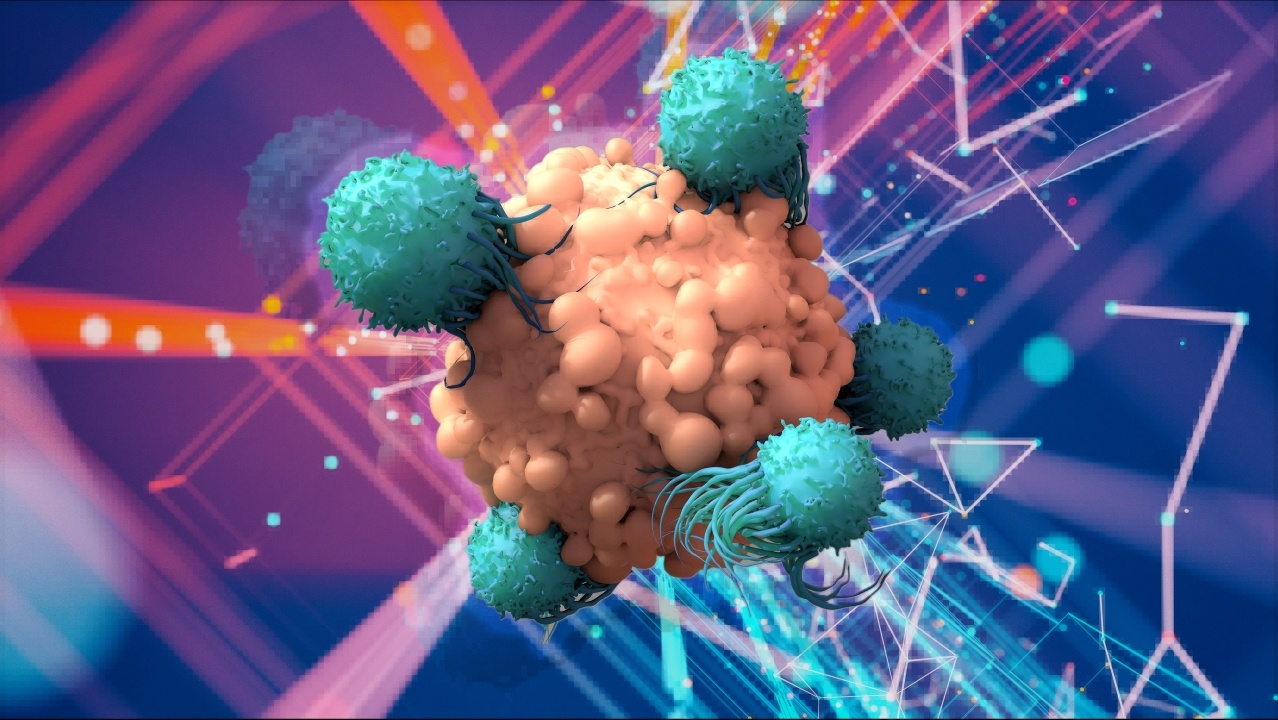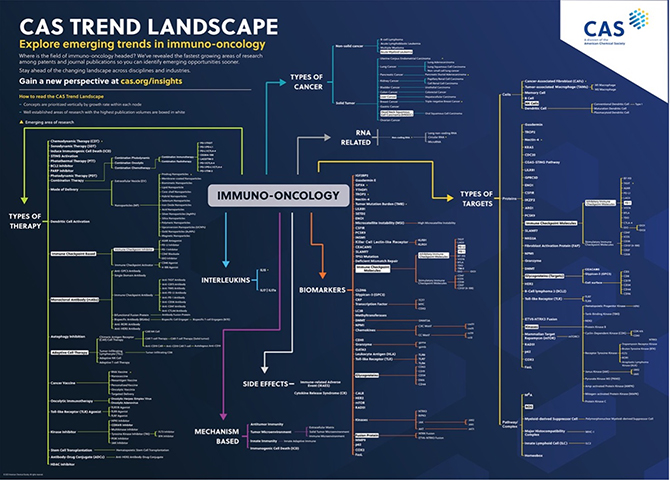Gain new perspectives for faster progress directly to your inbox.

Immunotherapy harnesses the body’s immune system to identify and eliminate tumor cells. The immuno-oncology field has been evolving rapidly with a marked increase in approved drugs. Continued interest in the field indicates immense future opportunities. Recently, experts from Huntsman Cancer Institute (the University of Utah), Genmab, and CAS joined for a webinar on February 21 to highlight insights from big data analysis in immuno-oncology.
Discover the latest developments in the immuno-oncology field in our recent article or access the webinar recording here.
Key highlights from the webinar
Kavita Iyer kicked off the webinar by presenting insights from Natural Language Processing (NLP)-driven analysis of publication data in the immuno-oncology field from the CAS Content Collection™. The NLP-based analysis helped identify more than 300 emerging concepts in the field across eight major categories: types of therapeutic targets, biomarkers, therapies, and cancers among others. These emerging concepts were presented in an easily digestible visual format, the CAS TrendScape®’ map, which showed that the field is rapidly evolving with more journal publications, clinical trials, and approved drugs.

Dr. Aik Choon Tan, the Senior Director of Data Science at Huntsman, continued the discussion by sharing his experience with big data analysis in relation to biomarkers in immuno-oncology. The necessity of valid biomarkers in predicting patient response to therapies cannot be overstated. Dr. Tan presented findings from a recent study detailing differences in biomarkers between responders and non-responders to immune checkpoint inhibitors in metastatic melanoma. Achieving a balance between response and adverse events remains a challenge for immune checkpoint-based therapy. Finally, Dr. Tan talked about exploring publicly available databases, such as clinicaltrial.gov and FDA Adverse Event Reporting System (FAERS), to gain insight into immune-related adverse events (irAEs) for cancers treated with immune checkpoint inhibitors.
Dr. Hisham Hamadeh, the Senior Vice President and Global Head of Data Science & AI at Genmab, spoke about the importance of data sharing, data privacy, and the concept of ‘FAIR’ data. Dr. Hamadeh gave recommendations on the nature and handling of data (including data collection, aggregation, sharing, and privacy) essential to maximize insights. Finally, he spoke briefly of cutting-edge technologies like AI-based Computer Vision to predict patient response to immune checkpoint inhibitors – a non-invasive technique that can consider variables that are otherwise “not humanly calculable.”
To wrap up, attendees asked many questions, including how the methodology described could be improved, applicability of similar analysis across different fields, and questions about data privacy and sharing. In conclusion, this webinar highlighted the use of big data analysis to identify many emerging topics in the immuno-oncology field worth watching to help shape future R&D opportunities.
Explore our detailed Insights Article and download our latest Executive Summary on immuno-oncology to learn more about emerging trends, obscure connections, and gain a landscape view of the field. See the recording and the associated slides from the webinar here.



